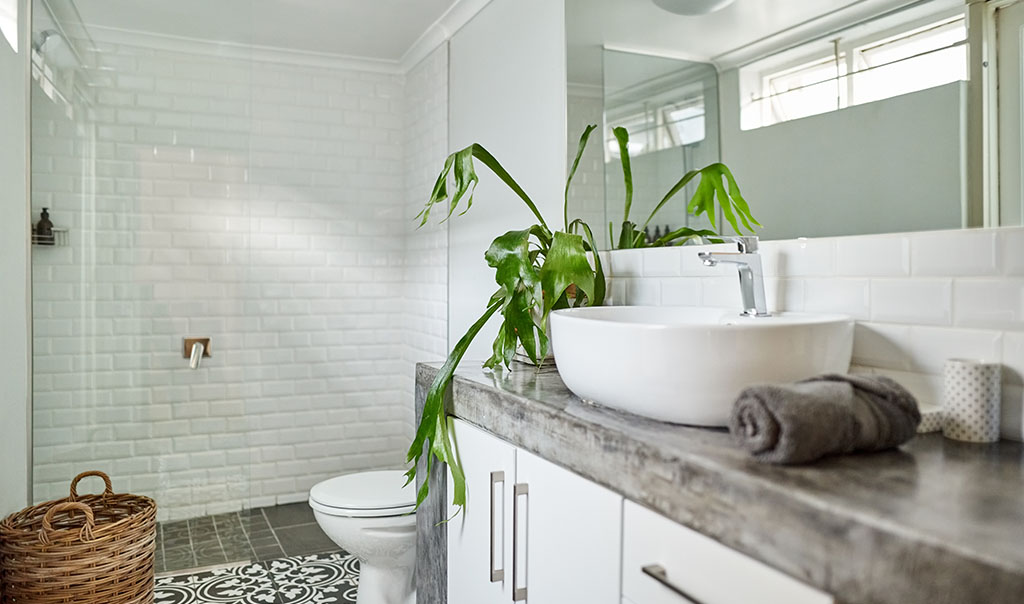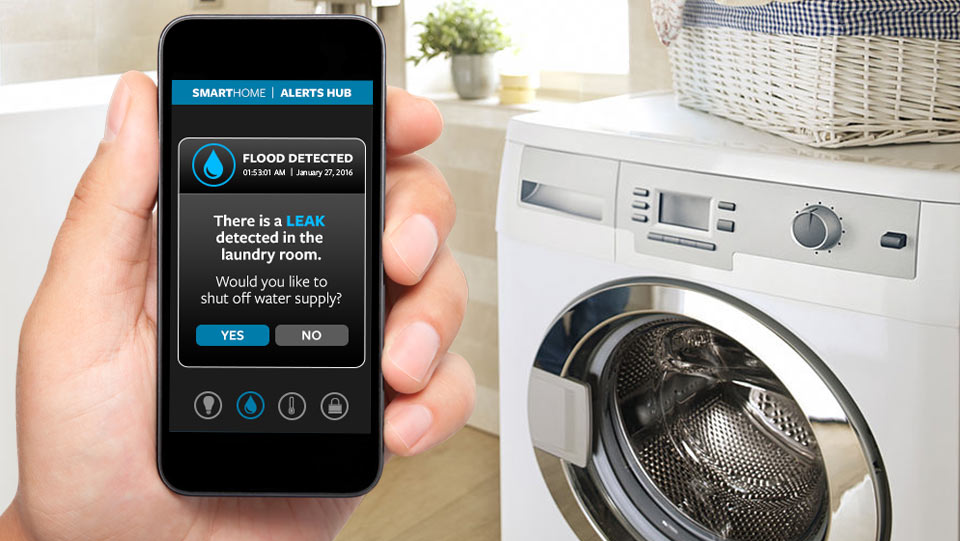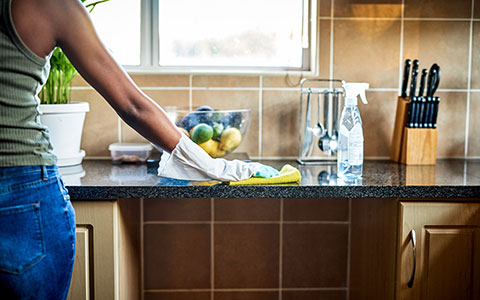How to Help Detect and Prevent Bathroom Leaks


Your bathroom plays many roles in your home. It can be your oasis for long showers or relaxing baths, and where you get ready for work or a night on the town. It’s also where you may store important medications or teach your young child how to brush their teeth.
Though typically among the smaller rooms of the house, bathrooms are essential to everyday life. And, if well-maintained and updated, bathrooms can even help to increase the value of your property.
For all these reasons and more, you’ll want to protect this versatile, highly used space from costly water damage that could leave it inaccessible and unusable.
Where do bathroom leaks come from?
Bathrooms contain multiple sources of water, such as the sink, shower/bathtub and toilet. Each of these sources has the potential to leak and damage a vanity, flooring, walls or personal property items. And leaks don’t always stay in one place. They may travel to adjoining or nearby rooms on the same floor. Water could also make its way to the floors below, dripping into the ceiling drywall and causing stains, cracking and sagging.
Lack of bathroom maintenance
Lack of maintenance can be the root cause of many plumbing problems. Because pipes are hidden behind walls, under floors and in cabinetry, it can be easy to forget about them. As time goes by, pipes age and may rust or corrode, creating an environment where clogs may form and connections become weak and faulty.
Bathroom installation issues and product defects
Sometimes, installation issues or product defects are the culprit. Improperly connected pipe fittings, poorly caulked shower bases or badly grouted tile can allow water to seep. Using defective or unsuitable materials or cracked parts may lead to leaks as well.
Thankfully, there are ways to help reduce the risk of damage from leaky pipes. A little knowledge and attention to bathroom maintenance helps keep water in your bathtub, toilet or sink instead of on the floor or other areas of your house.
Tips to help prevent water damage in the bathroom
Inspecting bathrooms and other spaces regularly for signs of leaks is a good way to help protect against water damage. Here are a few tips to help prevent water issues and stop them from getting worse:
- Look under each bathroom fixture (if viewable), look inside sink/bathtub access panels and check any attachments to toilets.
- Run your bathroom fan to remove excess moisture in the air and eliminate condensation.
- Install water sensors that notify you of leaks around fixtures and plumbing.
- Know how to operate your toilet’s float and water supply valve to help avoid, stop or slow down an overflow situation.1
- Locate your home’s main water shut-off valve and learn how to turn it off and on. You can use this to turn off all the water in your house.
- If your water bill increases significantly without explanation, it could be a clue that you have a hidden leak.
If any issues are found, be sure to address them immediately or contact a professional if you’re not comfortable fixing them yourself.
Ways that bathroom water damage can become a big deal
Though preventive measures may help lower the odds, they can’t stop all bathroom water damage. And when an incident occurs, it can result in costly and disruptive losses – especially if you don’t have good homeowners insurance. Insurance claims for non-weather-related water events have been known to exceed $10,000.2
Repair and restoration costs aren’t the only concern. If the damage is severe enough, you and your family may need to move out of your house while it’s being fixed. This could temporarily impact your family’s homelife and hurt your wallet.
To understand how any of this can happen in the first place, it helps to get a picture of what bathroom water damage may look like. Focusing on the areas where most bathroom leaks start – sink, bathtub/shower and toilet – here are some examples of scenarios you could face:
What bathroom water damage could look like
Sink drips. Your bathroom sink faucet has a slow drip. You don’t think it’s much to worry about, so you ignore it at first, but then days turn into weeks. During this time, a manufacturing defect in the sink drain’s P-trap is funneling that water leak into the cabinet, rotting the wood and destroying the items stored in your drawer. The leak also wastes a large amount of water, which is especially problematic if you have a well with a limited water supply.3
Shower/bathtub water leaks. After walking into the bathroom, you notice a musty smell coming from the shower. Even though the shower was recently renovated, you (or your plumber) check it for installation issues that might be letting water out. You also examine the caulk seal around the base. Upon further inspection, it appears the tile and grout were improperly installed and not sealed. You discover that water eroded the grout and seeped behind the tiles, causing the mildew responsible for this odor.
Toilet leak around the base. Just before leaving for vacation, you notice a small leak around the base of your upstairs toilet. You’re in a hurry, so you decide to deal with it after your trip. But what seems minor now eventually turns into gallons of water looking for somewhere to go. Water flows from the upstairs toilet’s broken ring gasket, down through the floor, across your living room ceiling below and pours onto your new sofa.
There are many reasons you’d want to avoid scenarios like these in your home. Among the most important is that they may not always be covered by insurance. Homeowners insurance typically covers unexpected, rapidly occurring water events and the ensuing damage. It doesn’t necessarily pay for losses caused by poor upkeep or a delayed response to a known problem. Talk to an agent about your specific policy and ask if your current coverage level is appropriate for you.
Take action to safeguard your home from bathroom leaks
While bathroom water damage could be destructive, you can help prevent it – or reduce its impact – through inspections, maintenance, water sensors and shut-off valves. If it does happen, having homeowners insurance with protection that fits your needs can give you peace of mind. And remember, for any repair work you’re not comfortable doing, or not trained to do, reach out to a professional.
To discover more about safeguarding your house with homeowners insurance, contact your local independent agent, get a quote or speak with a Travelers representative today.
Sources
1 https://disastersafety.org/maintenance/prevent-water-damage-from-plumbing-and-appliances/
2 https://www.iii.org/fact-statistic/facts-statistics-homeowners-and-renters-insurance
3 https://www.epa.gov/watersense/fix-leak-week#:~:text=Faucet%20Leaks,-Old%20and%20worn&text=A%20leaky%20faucet%20that%20drips,take%20more%20than%20180%20showers!



